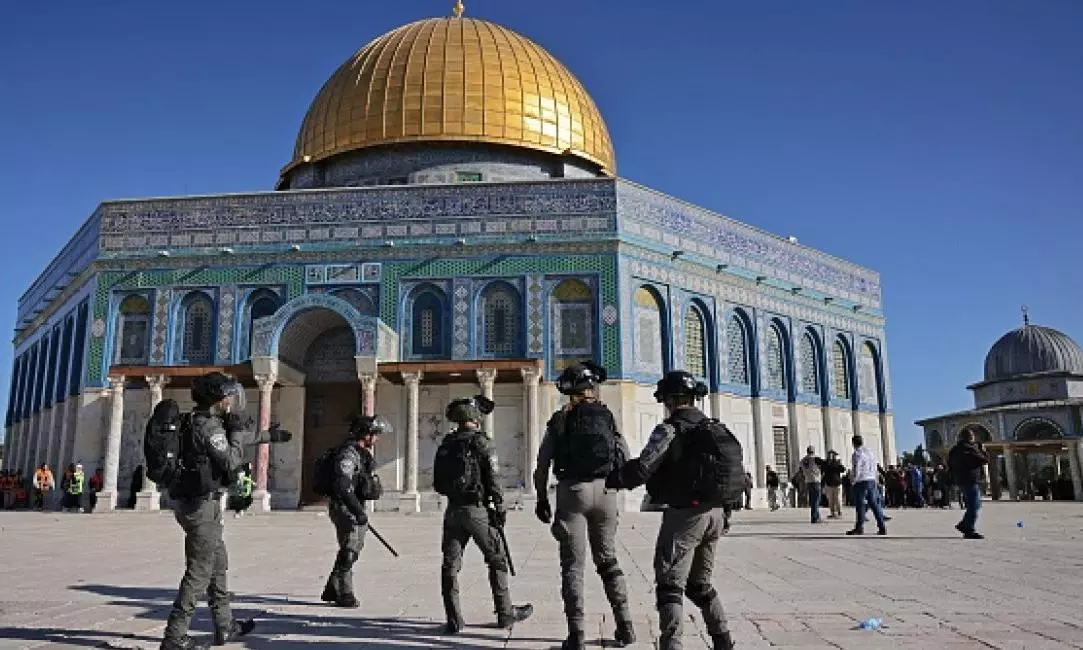
Al-Asqa mosque: The heart of contemporary Israel-Palestine conflict
The current building dates to the 11th century; standing close to key Jewish and Christian religious locales, the mosque records huge gatherings on Fridays

Its origin dates back to the seventh century, and it was built just five years after Prophet Muhammad’s death. The Al-Aqsa mosque, considered the holiest after Mecca and Medina, has been destroyed, rebuilt, and renovated many times. Today, it forms the core of the ongoing Israel-Hamas war.
Located in the heart of Jerusalem’s Old City on a hill Jews call Har ha-Bayit, and also known as the Temple Mount and al-Haram al-Sharif, the mosque is extremely holy for the Muslims, who believe the Prophet ascended to heaven for a night from this site.
No wonder, the mosque has deep religious significance for Muslims around the world. It is also a political symbol for Palestinians, particularly after Israel won the 1967 war and took control of East Jerusalem where the mosque stands.
Although Tel Aviv gave control of the mosque and its area to an Islamic group, Israeli security forces can still go there to conduct searches.
The current building largely dates to the 11th century. Prayers are held daily. Fridays draw huge gatherings. The mosque is located close to important Jewish and Christian religious locales. Many Israelis call it the holiest site in Judaism.
Mosque area
The mosque’s compound overlooks the Western Wall, a sacred place for Jewish prayers. Jews consider the Temple Mount their holiest site, believing that King Solomon built the first temple there 3,000 years ago. The Romans destroyed a second temple in AD 70. Christians consider the site important due to links with events in Jesus Christ’s life.
Naturally, all this make it a focal point for conflict – the one we are seeing now.
While most Israelis respect the sanctity of the place and do not visit it because walking there, they believe, will be sacrilege, some ultra-Orthodox Jews seek greater control of the site.
Since the 1990s, the mosque has seen convulsions – and protests, often leading to deaths.
In 1996, Palestinians protests and clashed with Israeli security forces after a new tunnel was opened near the mosque compound, leaving more than 80 dead in just three days.
Four years later, Israeli politician Ariel Sharon angered Palestinians when he, as an Opposition leader, led a group of Israeli members of parliament to the complex. This was viewed as a grave provocation.
The year 2014 saw unprecedented disturbances. First, after an attack on a right-wing rabbi, Israel closed access to the mosque – for the first time since 1967. Later, Israeli police used tear gas and stun grenades against Palestinians within the mosque, triggering mass protests and the second Intifada.
Unending clashes
Clashes at the site in 2021 led a 10-day war between Israel and Hamas in Gaza. And it is this incident that Mohammed Deif, considered to be the mastermind of the current attack, has vowed to avenge.
This year, in April, there were sudden and unprovoked attacks on Palestinian people praying in the mosque, causing widespread anger.
In September, Israeli settlers daringly went to the mosque to pray while security forces attacked Palestinians entering the complex.
When Hamas virtually invaded Israel on October 7, it named its military offensive Operation Al-Aqsa Flood. Hamas said it was avenging Israeli high-handedness at the mosque site.
The mosque has again proved how a religious row can spark savagery.

